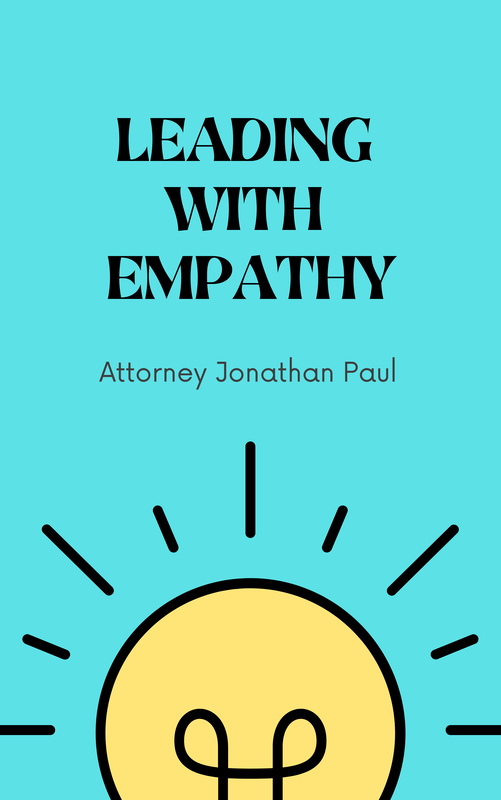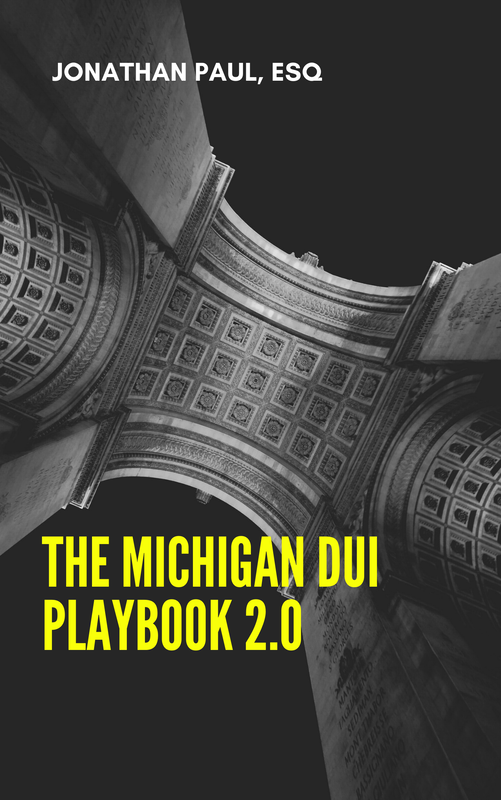|
This guide is designed to help you understand your role in Sobriety Court. Please take a moment to read it and share it with your family and friends. As a participant entering Sobriety Court, you are expected to follow all the guidelines in this handbook.
The Difference It Can Make Sobriety Court provides an opportunity for early treatment intervention and involves enhanced supervision, counseling, and treatment for you to function in the community with continuing support. The goal of Sobriety Court is to assist you in the struggle against addiction and to help you make positive changes in your life. Your agreement to participate is a good first step. Once you complete the Sobriety Court Program, you will have a solid foundation to build on to maintain sobriety in a quality recovery program. Overview of Program The Sobriety Court Program was implemented in March 2008. The program is based on a team concept involving the Judge, the Sobriety Court Program Coordinator, three Intensive Sobriety Court Probation Officers, three Sobriety Court Defense Advocates, a representative of the Office of the Prosecutor, and various substance abuse treatment providers. All members work together to support you in addressing and treating the substance abuse issues that resulted in placement in the criminal justice system. Sobriety Court consists of a minimum of 72 weeks of supervision and consists of two phases: Phase I Intensive Phase Phase II Aftercare Phase Each phase is a minimum of nine months in duration. The first 36 weeks of the program are intense. You will meet weekly with your probation officer and alcohol counselor. Initially, you will also be required to submit to a daily alcohol/drug test and to attend AA daily. Later in this phase you will be required to attend the Impact Weekend. Also, you will appear before the judge at least once a month. If you have driving privileges, you must have the Ignition Interlock installed on your vehicle. Finally, you will have a curfew of 10:00 p.m. during the beginning weeks of the program. Based on your performance, you may be eligible for a series of step-downs in the intensive phase. A step-down generally occurs after four and a half months in the program. The criteria for this reduction in program intensity is 90 consecutive clean/sober days, the accumulation of 112 points, and verification of an AA sponsor. If a step-down is granted, there will be a reduction in the frequency of probation appointments, testing, and AA attendance. On successful completion of the first 36 weeks of the program and when you have earned 180 points, you will graduate from the Intensive Phase of Sobriety Court and move to the Aftercare Phase. This phase is less restrictive in supervision; you will report to the probation officer less frequently and will not have to appear before the judge. The Sobriety Court Team; DUI (Driving Under the Influence) Drug Court Program; Judge The Sobriety Court judge is aware of the significant impact of substance abuse on the court system, the lives of participants and their families, victims of criminal behavior, and the entire community. The judges of the District Court are committed to the Sobriety Court Program concept and work as partners to ensure the success of the team. The judge presides over the team meetings to review and evaluate your progress. Intensive Probation Officer Your probation officer is the case manager and assists you in meeting the conditions of the program. You will meet with your probation officer weekly in the intensive phase of the program. The probation officer identifies community resources of value to you to help you achieve a quality sobriety. Your probation officer attends the staffing or case review to inform the team of your progress. Sobriety Court Coordinator The coordinator is the administrator of the Sobriety Court Program and the director of the Probation Division. The coordinator, in consultation with the team, decides if you are eligible for the program. The coordinator maintains contact with all members of the team and attends the case staffing reviews. It is also the role of the coordinator to file any administrative or budgetary reports as required. Finally, the coordinator writes grants as needed according to state and federal guidelines. Treatment Provider At your first appointment with your probation officer, you will be referred to a counselor who is trained in addiction. You will be required to meet with your counselor a minimum of once a week throughout the intensive phase of the program. The treatment provider is required to maintain regular communication with your probation officer and to provide weekly progress reports. The treatment provider may attend the case conference review to report on your progress in treatment. Defense Attorney When you sign the Sobriety Court contract, you agree to give up the right to the attorney of your choice. You will be represented by the Sobriety Court Defense Advocates while you are in the program. Your defense advocate will advocate for you and protect your rights. The defense advocate participates in the team meeting and has participated in the drug court training. Prosecutor A representative of the Office of the Prosecutor is present at the case conference and participates as a team member. In the event of noncompliance with the program rules, the prosecutor will advocate on behalf of the State and will make recommendations to the team regarding the imposition of sanctions and your continuation in the program. Law Enforcement The local police agencies support the concept of Sobriety Court in the goal of reducing repeat drunk driving offenses. Law enforcement may be utilized to provide surveillance to ensure participant accountability with program conditions. A Sobriety Court police officer may make a home visit. The officer will search the residence for alcohol, drugs, and paraphernalia. If you are not home, your family member, spouse, or partner must admit the officer into the home. PROGRAM GUIDELINES Courtroom Behavior Attendance at the review hearings with the judge is mandatory in Sobriety Court. Your dress should be appropriate and should not include hats or sunglasses. Additionally, clothes displaying offensive language or advertising alcohol or other drugs are not permitted. Loud and disruptive behavior is unacceptable. You must be on time for a review. Please turn off your cell phone when you enter the court. Attendance You are required to attend all probation meetings, counseling sessions, AA meetings, court reviews, and commencement ceremonies as directed. Failure to attend will result in progressive sanctions. In the event of a sudden illness and/or death in your immediate family, contact your probation officer immediately. Honesty The key concepts of Sobriety Court are honesty and personal accountability. Dishonesty will only impede the goal of a clean and sober lifestyle and will result in your termination from Sobriety Court. Dishonesty in any form, such as lying, adulterated drug screens, fraudulent signatures on documents, and fraudulent documents, will not be tolerated and will be severely sanctioned in Sobriety Court. Your honesty is essential to your participation in Sobriety Court. Medication You will learn in Sobriety Court that cross addiction is a real problem. Many of you are already using more than one substance but have one you like more than others. You will find it quite easy to change from one mood-altering substance to another. As long as you continue to alter the way you feel with alcohol or drugs rather than with new thoughts and activities, you will remain an addict. You may feel the need to continue to use a variety of drugs, particularly to help you sleep or to cope with pain. While you are in Sobriety Court, you may not use mood-altering drugs or drugs commonly used to treat pain such as Lortab, Percocet, Vicodin, Darvon, Xanax, Darvocet, OxyContin, Valium, Ambien, Sonata, Klonopin, and Tylenol III. This is not a complete list of drugs you must avoid. To be sure that you will not test positive on a drug test and be sanctioned, you must check with your probation officer before taking any medication. You need to be particularly careful with cold medications and cough syrups. You have to take responsibility for all your drug use since your doctor, dentist, or pharmacist may not be aware of your addiction. You should inform your doctor, dentist, and pharmacist and other professionals who provide treatment to you of your involvement in Sobriety Court. Drug Testing You will be regularly tested for alcohol and drugs in Sobriety Court. If you fail to test, if you test late, or if you test positive, you will receive a jail sanction. If you tamper with or dilute a drug screen, you will receive a jail sanction and may be terminated from the program. In addition to testing at [name of facility] or a police department, you will be drug tested once a week, when you meet with your probation officer. If you lie about your use following a positive alcohol/drug test, you will be sanctioned with additional jail days. Driving Privileges If you have driving privileges (full or restricted), you must install an Ignition Interlock within 5 working days of entering Sobriety Court. It is preferred that only you drive the vehicle with the Ignition Interlock. However, if you allow someone else to drive the vehicle, you will be sanctioned for any positive tests that may occur. Sanctions and Rewards Noncompliance with program rules will lead to sanctions imposed by the court. The sanction is decided by the Sobriety Court team. Sanctions include but are not limited to the following: increased testing, community service, enhanced treatment, additional AA meetings, and jail. Rewards such as concert tickets, food coupons, and coupons to reduce the cost of testing may be given to participants who comply with program rules and demonstrate a commitment to recovery. Termination Sobriety Court is committed to providing you and all other participants with an opportunity to become alcohol- and drug-free. However, your continued participation in Sobriety Court is dependent on your compliance with program rules and regulations. Examples of noncompliance include the following:
If you are terminated from Sobriety Court, you will be sentenced to the maximum jail sentence your charge allows under the law. Termination from Sobriety Court is considered a last resort and is based on documented serious violations of the program guidelines. TREATMENT Substance abuse treatment and alcohol/drug testing are the cornerstones of the Sobriety Court program. You will be referred to treatment by the Sobriety Court intensive probation officer or you may choose your own counselor. If you choose your own, your treatment provider must be approved by your probation officer. Also, the treatment provider must agree to follow the program rules regarding the filing of treatment progress reports and must have a specialization in substance abuse issues. Finally, the treatment provider must agree to open disclosure regarding your progress in treatment. COMMENCEMENTAfter nine months, when you have completed the requirements of the intensive phase and demonstrated a strong commitment to aftercare and recovery, you will move to the Aftercare Phase, the second nine-month phase of the program. You must meet the following requirements to graduate:
Your family and friends are invited to our commencement celebration. The judge will acknowledge your hard work and your choice of an alcohol/drug-free lifestyle. Remember that your recovery is an ongoing process. The Aftercare Phase is designed to help you in your recovery. ADMISSION TO SOBRIETY COURT: WHAT YOU NEED TO KNOW Alcohol and Drug Testing You must submit to alcohol testing daily for a minimum of 90 consecutive days. The testing may take place at [name of facility] or at a police department. After the first 90 days, the frequency of alcohol testing may be reduced. All testing occurs between the hours of 5:30 a.m.–7:30 a.m. In addition to being alcohol tested, you will be drug testing one time a week, when you see your probation officer, and you may also be required to be drug tested at an approved testing facility. Your probation officer will provide specific directions on when and where you will test. AA Attendance You will begin Sobriety Court with the requirement of attending 90 AA meetings in 90 days. After that, the daily requirement may be reduced. AA attendance sheets must be signed by the meeting chairperson or table leader. A signature that is not accompanied by a phone number is considered invalid. Since Sobriety Court is an honesty program, the sanction for falsifying an AA sheet generally results in immediate termination. As part of the AA requirement, you will be required to attend a Sobriety Court Alumni Support Group meeting once a month, while you participate in the intensive phase. Attendance at the meeting will be counted as an AA meeting during the week you attend. These meetings are held at the court on the first and third Tuesday of every month. Counseling Your probation officer will refer you to a substance abuse counseling program at your first meeting. While you are in the intensive phase, you will meet with a counselor at least once a week. You may also be asked to attend other treatment programs such as a 3/4 House. The treatment plan is determined by the treatment provider and the probation officer. However the Sobriety Court team may alter the treatment plan based on your progress in treatment. While you are completing the 90 meetings in 90 days in the Intensive Phase, your counseling session may be counted as an AA meeting. Curfew A 10:00 p.m. curfew is imposed when you enter Sobriety Court. Probation Appointment You will report to your probation officer once a week. If you fail to report to probation as scheduled, the judge may issue a bench warrant for your arrest. It is very important to report for probation on time. Review Hearings You will appear before the judge once a month. Attendance at the review hearing is mandatory. Home Visits The Sobriety Court police officer may make random visits. Having signed the Sobriety Court contract, you have given the officer the right to search your home. The officer must be allowed entry by anyone present in the home. Be aware that if the officer finds alcohol, drugs, or paraphernalia in the home, whether or not it is yours, you will be sanctioned. It is your responsibility to make sure no alcohol, drugs, or paraphernalia are in the home. . Comments are closed.
|
Click to Email Me Categories
All
|
Ann Arbor Office LocationPlymouth Office Location |
Representing DUI Clients in MichiganRepresenting clients charged with a DUI in Ann Arbor, Canton, Brighton, Howell, Saline, Adrian, Taylor, Plymouth, Northville, Westland, Ypsilanti, Pittsfield Towsnhip, Warren, Sterling Heights, Farmington, Pontiac, Romulus, Lansing, Novi, South Lyon, Southfield, Birmingham, Bloomfield Hills, Royal Oak, Troy, Rochester, Jackson, East Lansing, Garden City, Livonia, Dearborn, Detroit, St Clair Shores, Hazel Park, Ferndale, Madison Heights, Waterford, Milford, Shelby Township Clarkston, Oak Park, Berkley, Fraser, Sterling Heights, Clinton Township and others throughout Washtenaw, Wayne, Monroe, Jackson, Genesee, Macomb, Ingham, Lenawee, Livingston and Oakland County.
|







